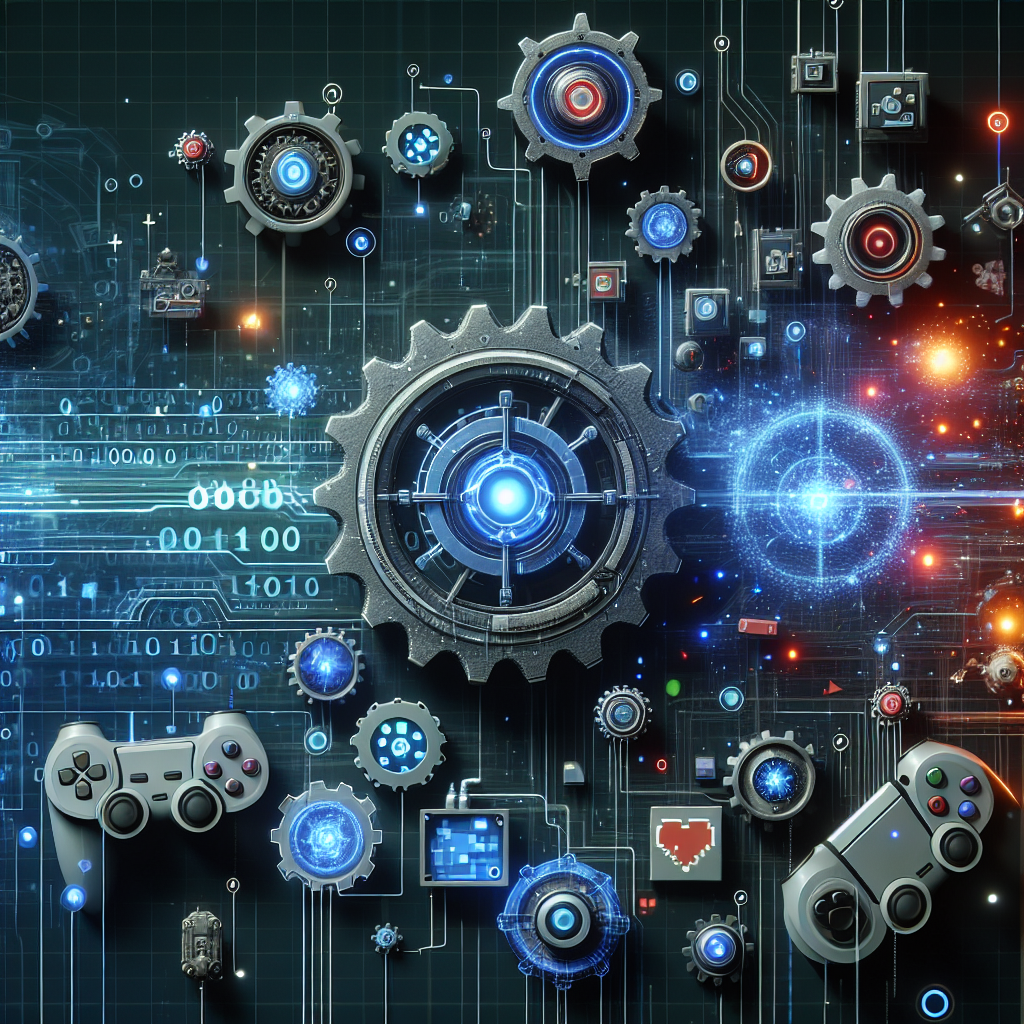In recent years, the gaming industry has seen a significant shift towards the use of AI-powered game design tools. These tools leverage the power of artificial intelligence to assist game developers in creating more engaging and immersive gaming experiences. From generating game levels to designing characters and balancing gameplay, AI-powered tools have revolutionized the way games are created.
One of the key benefits of using AI-powered game design tools is their ability to automate time-consuming and repetitive tasks. Game developers can use these tools to quickly generate large amounts of content, such as game levels or character designs, without having to manually create each element from scratch. This not only saves developers time but also allows them to focus on more creative aspects of game design, such as storytelling and gameplay mechanics.
AI-powered game design tools can also help developers create more dynamic and unpredictable gaming experiences. By analyzing player behavior and preferences, these tools can generate content that is tailored to each individual player, resulting in a more personalized and engaging gameplay experience. This level of customization can help developers attract and retain players, ultimately leading to increased player engagement and revenue.
Another advantage of using AI-powered game design tools is their ability to optimize game balance and difficulty. By analyzing gameplay data and player feedback, these tools can adjust game parameters in real-time to ensure a challenging yet enjoyable gaming experience. This can help developers create games that are both fun and fair, leading to higher player satisfaction and retention.
Additionally, AI-powered game design tools can help developers identify and fix bugs and issues more quickly. By analyzing game code and player behavior, these tools can pinpoint potential problems before they impact players, allowing developers to address issues proactively and release more polished games. This can help developers save time and resources, as well as maintain a positive reputation among players.
Overall, AI-powered game design tools have the potential to revolutionize the way games are created and played. By leveraging the power of artificial intelligence, developers can create more engaging, personalized, and polished gaming experiences that resonate with players. As the gaming industry continues to evolve, AI-powered tools will likely play an increasingly important role in shaping the future of game design.
FAQs:
Q: How do AI-powered game design tools work?
A: AI-powered game design tools use machine learning algorithms to analyze gameplay data, player behavior, and other relevant information to generate content, balance gameplay, and optimize game performance. These tools can automate tasks that would typically require human intervention, allowing developers to create games more efficiently and effectively.
Q: Are AI-powered game design tools easy to use?
A: While AI-powered game design tools can be complex, many developers find them relatively easy to use once they become familiar with the technology. Most tools come with user-friendly interfaces and tutorials to help developers get started. Additionally, many tools offer customization options to tailor the AI algorithms to specific game design needs.
Q: Can AI-powered game design tools replace human game developers?
A: AI-powered game design tools are meant to assist human developers, not replace them. While these tools can automate certain tasks and streamline the game design process, they cannot replicate the creativity and intuition of human developers. Ultimately, the best results are achieved when AI-powered tools are used in conjunction with human expertise and creativity.
Q: Are AI-powered game design tools expensive?
A: The cost of AI-powered game design tools can vary depending on the complexity of the tool and the features it offers. Some tools may be more expensive than others, but many developers find that the benefits of using these tools outweigh the cost. Additionally, there are often free or open-source AI-powered tools available for developers to use.
Q: What are some popular AI-powered game design tools?
A: Some popular AI-powered game design tools include Unity’s ML-Agents, Autodesk’s Gameware, and IBM’s Watson. These tools offer a range of features, such as level generation, character design, and gameplay optimization, to help developers create more engaging and immersive gaming experiences. Additionally, many game engines, such as Unreal Engine and Unity, offer built-in AI capabilities that developers can leverage in their game design process.

